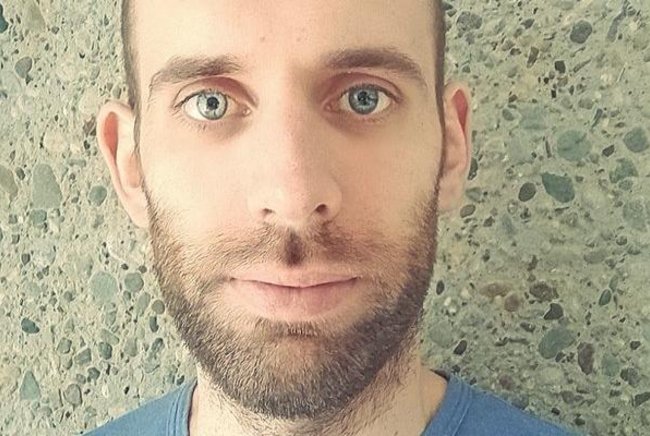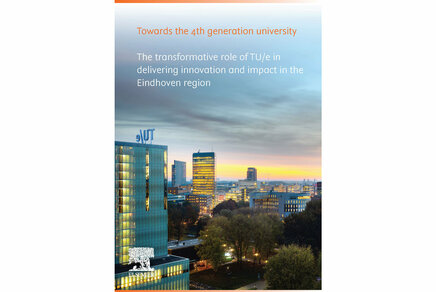Vidi grant will advance mathematical research into digital communication
Alberto Ravagnani will solve central problems in contemporary coding theory by developing combinatorial methods.

Coding theory is the science of making data robust to noise and disturbances and helps guarantee the reliability of today’s digital communications. It is a highly complex field within mathematics, but with very practical applications, for instance in deep-space exploration, network communications, and cryptography. TU/e-based researcher Alberto Ravagnani has received a Vidi grant from the Dutch Research Council (NWO) to solve major problems in coding theory related to so-called rank-metric codes. The researcher will use the grant to enlarge his own research group within the next five years.
Alberto Ravagnani, assistant professor at the department of Mathematics and Computer Science, is an expert in coding theory, the study of error-correcting codes. Coding theory adds redundancy to make the transmission of data more robust to noise. It is used for instance in compact discs (to correct errors due to scratches and dust), cell phones (to correct for the fading and noise of high frequency radio transmission) and even in the NASA Deep Space Network.
The main challenge in coding theory is to increase the error correction capability of a code (which helps the receiver of a message to infer the correct information), while at the same time transmitting as much information as possible.
A new approach
Ravagnani has set his sights on problems that classical methods so far have failed to solve. These are related to rank-metric codes, a special kind of error-correcting codes based not on ordinary vectors, but on matrices. “Rather than improving on existing methods, my project aims at introducing a fundamentally new approach based on the interplay between coding theory and combinatorics, the science of finite structures,” says the researcher.
By using combinatorial methods, Ravagnani’s goal is to find new structural properties of rank-metric codes, which will help to solve the aforementioned problems. These are centered around the classification of codes in the rank metric and matrix completion problems over finite fields.
Practical impact
“Solving these problems does not only have a theoretical significance”, says Ravagnani. “I expect they will also have an impact in the field of cryptography, which increasingly uses cryptosystems based on error correcting codes, because they are resistant to quantum computer attacks”.
Perhaps more surprisingly, the researcher also anticipates benefits in the field of quantum physics, where rank-metric codes also play a role. “Combining coding theory, combinatorics and quantum physics shows much promise for fruitful and highly interdisciplinary collaborations among different research communities,” he says.
Alberto Ravagnani obtained his PhD in mathematics in 2016 from the University of Neuchâtel, Switzerland. After postdoc experiences in Canada and Ireland, he joined TU/e in 2020, where he is part of the Coding Theory and Cryptology group.
About Vidi
Vidi is a grant program of the Dutch Research Council (NWO). It is aimed at experienced researchers who have already successfully conducted research for a number of years after obtaining their PhD. In total, 402 researchers submitted a proposal for this year’s round. Of these, 78 have now been awarded funding. They each receive 800,000 euros to develop their own innovative line of research and set up a research group over the next five years.
Media contact
Latest news


